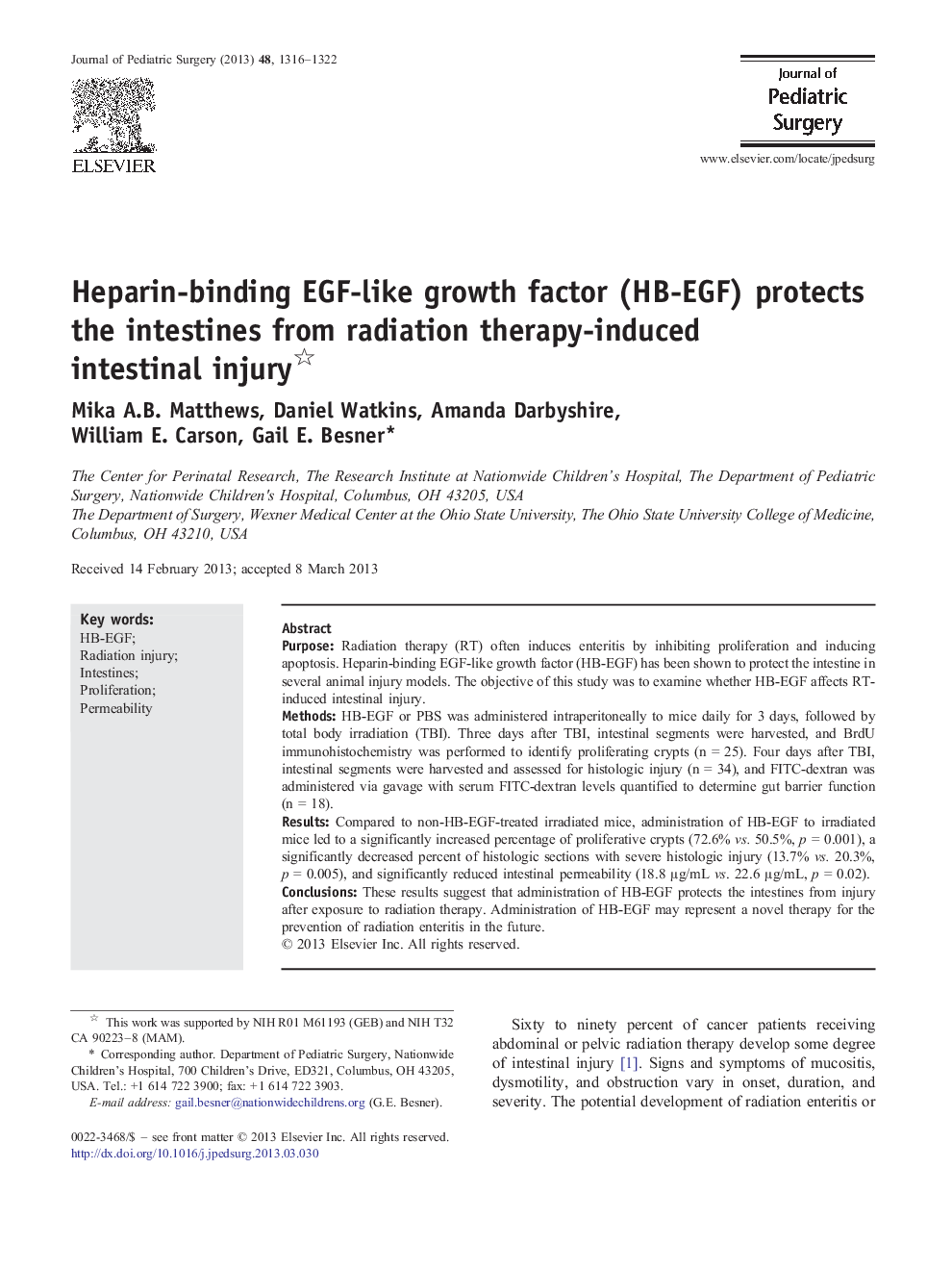| Article ID | Journal | Published Year | Pages | File Type |
|---|---|---|---|---|
| 4156009 | Journal of Pediatric Surgery | 2013 | 7 Pages |
PurposeRadiation therapy (RT) often induces enteritis by inhibiting proliferation and inducing apoptosis. Heparin-binding EGF-like growth factor (HB-EGF) has been shown to protect the intestine in several animal injury models. The objective of this study was to examine whether HB-EGF affects RT-induced intestinal injury.MethodsHB-EGF or PBS was administered intraperitoneally to mice daily for 3 days, followed by total body irradiation (TBI). Three days after TBI, intestinal segments were harvested, and BrdU immunohistochemistry was performed to identify proliferating crypts (n = 25). Four days after TBI, intestinal segments were harvested and assessed for histologic injury (n = 34), and FITC-dextran was administered via gavage with serum FITC-dextran levels quantified to determine gut barrier function (n = 18).ResultsCompared to non-HB-EGF-treated irradiated mice, administration of HB-EGF to irradiated mice led to a significantly increased percentage of proliferative crypts (72.6% vs. 50.5%, p = 0.001), a significantly decreased percent of histologic sections with severe histologic injury (13.7% vs. 20.3%, p = 0.005), and significantly reduced intestinal permeability (18.8 μg/mL vs. 22.6 μg/mL, p = 0.02).ConclusionsThese results suggest that administration of HB-EGF protects the intestines from injury after exposure to radiation therapy. Administration of HB-EGF may represent a novel therapy for the prevention of radiation enteritis in the future.
